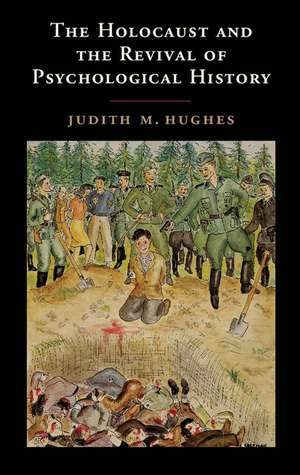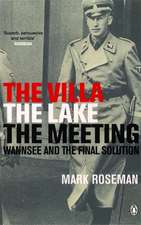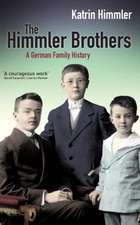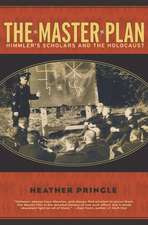The Holocaust and the Revival of Psychological History
Autor Judith M. Hughesen Limba Engleză Paperback – 26 oct 2014
Preț: 199.64 lei
Nou
Puncte Express: 299
Preț estimativ în valută:
38.21€ • 39.78$ • 32.29£
38.21€ • 39.78$ • 32.29£
Carte disponibilă
Livrare economică 17 februarie-03 martie
Preluare comenzi: 021 569.72.76
Specificații
ISBN-13: 9781107690448
ISBN-10: 1107690447
Pagini: 195
Dimensiuni: 140 x 216 x 13 mm
Greutate: 0.27 kg
Editura: Cambridge University Press
Colecția Cambridge University Press
Locul publicării:New York, United States
ISBN-10: 1107690447
Pagini: 195
Dimensiuni: 140 x 216 x 13 mm
Greutate: 0.27 kg
Editura: Cambridge University Press
Colecția Cambridge University Press
Locul publicării:New York, United States
Cuprins
1. Hitler; 2. Nazi Germany and the Jews; 3. Willing executioners; 4. Examinations of conscience; 5. A battle with truth; 6. Conclusion.
Recenzii
'Elegant and accessible, Judith M. Hughes's sober discussion probes the inner lives of Holocaust perpetrators through the lens of widely read researchers. Her book is a reminder of how varied and challenging have been responses to one of the most unsettling questions of our time: 'how could they do it?'' Michael R. Marrus, Chancellor Rose and Ray Wolfe Professor Emeritus of Holocaust Studies, University of Toronto
'In this gracefully written and quite absorbing review of the historiography of the Holocaust, Hughes clarifies the psychological questions posed implicitly or explicitly by the historians. Along the way she has much of interest to say about the personalities of both the perpetrators and their chroniclers.' Timothy Snyder, Bird White Housum Professor of History, Yale University
'The historian and psychoanalyst Judith Hughes has produced a book that will allow nonspecialists to return to past debates on the Holocaust. Her volume examines prominent figures, including Adolf Hitler, Adolf Eichmann and Albert Speer; their biographers, including Ian Kershaw, Hannah Arendt and Gita Sereny; and controversies surrounding German and Polish complicity in the persecution of the Jews, including Daniel Goldhagen's Hitler's Willing Executioners and Jan Gross's Neighbors.' Anthony D. Kauders, German History
'… a thought-provoking narrative about the way in which psychological questions have emerged in the Holocaust historiography, from the early post-war years until the twenty-first century.' Danae Karydaki, European History Quarterly
'In this gracefully written and quite absorbing review of the historiography of the Holocaust, Hughes clarifies the psychological questions posed implicitly or explicitly by the historians. Along the way she has much of interest to say about the personalities of both the perpetrators and their chroniclers.' Timothy Snyder, Bird White Housum Professor of History, Yale University
'The historian and psychoanalyst Judith Hughes has produced a book that will allow nonspecialists to return to past debates on the Holocaust. Her volume examines prominent figures, including Adolf Hitler, Adolf Eichmann and Albert Speer; their biographers, including Ian Kershaw, Hannah Arendt and Gita Sereny; and controversies surrounding German and Polish complicity in the persecution of the Jews, including Daniel Goldhagen's Hitler's Willing Executioners and Jan Gross's Neighbors.' Anthony D. Kauders, German History
'… a thought-provoking narrative about the way in which psychological questions have emerged in the Holocaust historiography, from the early post-war years until the twenty-first century.' Danae Karydaki, European History Quarterly
Notă biografică
Descriere
Hughes focuses on how historians' efforts to grapple anew with actors' meanings, intentions, and purposes have prompted a return to psychoanalytically informed ways of thinking.













